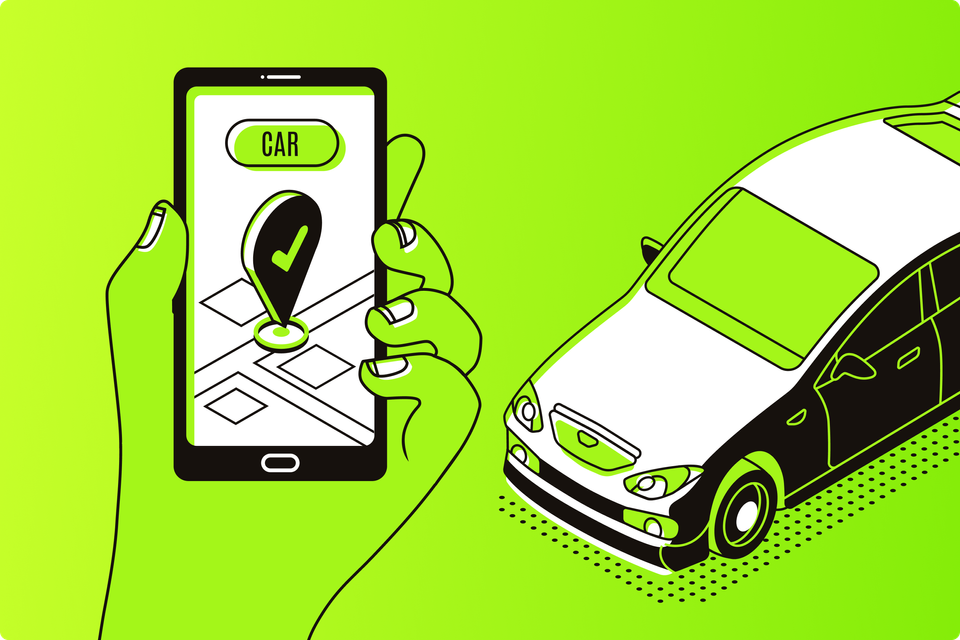Tech Trends Emerging in Car Insurance

In the past few years, the car insurance industry has undergone a seismic technological shift. Gone are the days when insurance was a localized, paper-based industry. With the emergence of new technologies, car insurance has embraced digital transformation with open arms. From telematics to artificial intelligence (AI), the industry has seen a wave of new technologies that have revolutionized how insurers operate and how consumers interact with insurance. One such technology that has gained massive popularity in recent years is telematics.
This technology tracks a driver's behavior and provides insurers with more accurate information to determine premiums. Another trend that's gaining traction is the use of AI in insurance. As machines become better at analyzing massive amounts of data, insurers are using AI to automate claim processing and improve fraud detection. Blockchain technology is also making waves in the insurance industry, with its ability to secure data, eliminate third-party intermediaries, and provide a tamper-proof record of all transactions. As the industry adapts to these tech trends, car insurance is becoming more streamlined, transparent, and customer-centric.
Section 1: Telematics and Usage-Based Insurance (UBI)

The advancements in technology have brought about a significant transformation in the insurance sector, with car insurance being no exception. One such trend gaining momentum is telematics, a technology that uses devices to collect driving data from vehicles.
This data is then analyzed using artificial intelligence algorithms to personalize insurance premiums based on individual driving behavior. By collecting data related to speed, acceleration, and braking, these devices can provide a more accurate assessment of risk and help insurers offer tailored pricing to drivers. The adoption of telematics has been further enhanced through the use of blockchain technology, which enhances security and transparency in data collection and analysis.
This digital transformation of insurance has revolutionized the way car insurance premiums are calculated, moving away from the traditional demographics-based system to a more individualistic, behavior-based one. With telematics and AI, drivers can now have a more accurate pricing system, ensuring that they pay for what they use instead of an estimation that may not accurately reflect their driving habits.
In the world of car insurance tech trends, the integration of telematics and usage-based insurance has been a game-changer. LUNA, in particular, stands out for its innovative use of telematics data to offer personalized insurance rates.
LUNA is able to analyze this data for individual drivers, taking into account their specific habits and driving patterns. This allows LUNA to provide a tailored insurance plan that is uniquely suited to each customer. As the industry continues to move towards greater digital transformation, it's clear that telematics, along with other emerging technologies such as blockchain, will play a key role in shaping the future of car insurance.
LUNA's approach is a prime example of how these tools can be leveraged to provide better value for customers, while also driving greater efficiency and profitability for insurance companies.
Section 2: Artificial Intelligence (AI) in Customer Service and Claims Processing
With the emergence of new car insurance tech trends, the industry is in the midst of a digital transformation. One key element of this transformation is the incorporation of artificial intelligence (AI) in insurance operations. In particular, AI is being utilized to revolutionize customer service interactions and claims processing.
By automating customer service interactions, AI chatbots can respond to inquiries and requests around the clock, without the need for human intervention. Additionally, telematics technology has enabled AI to be used for accurate and efficient claims processing. By analyzing data collected from in-car telematics devices, AI can assess the level of damage sustained in an accident and initiate claims processing.
The use of AI in these areas not only improves efficiency and accuracy, but also enhances the overall customer experience. Customers can expect quick and accurate responses to their inquiries, as well as speedy resolution of claims. Blockchain technology is another emerging tool for the integration of AI in insurance, as it provides a secure platform for data sharing and transactions. As the insurance industry continues its transition to a digital age, AI is poised to make significant impacts in improving operations and delivering exceptional service.
Section 3: Blockchain for Fraud Detection and Claim Transparency

The digital transformation of the insurance industry is continuously evolving, and car insurance tech trends play a critical role in enabling insurers to provide their customers with comprehensive solutions that meet their needs. With the rise of telematics and Artificial Intelligence (AI) in insurance, insurers can analyze vast amounts of data to gain insights into customer behavior, resulting in customized insurance packages that cater to each customer's needs. But, with these advancements, fraud detection and claim transparency have become challenging to manage.
This is where blockchain technology comes in. By recording all transactional data on the blockchain, insurers can create an immutable, transparent, and secure digital ledger that enhances transparency and security. Moreover, blockchain technology can help make the claims process more streamlined, reducing costs, and improving the customer experience. Insurance companies are using blockchain to develop smart contracts for automating claims processing, reducing paperwork, lowering operational costs, and boosting efficiency
Section 4: Advanced Data Analytics for Risk Assessment
The traditional approach to risk assessment in insurance involved underwriters collecting data on customers to determine their level of risk. However, with advancements in car technology, telematics data has emerged as a key source of information for insurers. This technology allows for the gathering of real-time data on driving behaviour, which can then be analysed using advanced analytics tools like AI and blockchain. By analysing this data, insurers can tailor their policies to individual drivers' risk profiles, resulting in more accurate pricing and reduced costs for both the insurer and the customer. In this era of digital transformation, a forward-thinking insurer must embrace the use of advanced analytics to stay competitive and provide the best possible service for their customers. With the incorporation of these tech trends, it is possible to take risk profiling to a new level, ensuring that drivers are matched with the right policies and treated fairly by their insurers. Ultimately, the future of car insurance lies in the use of advanced analytics tools, and companies that ignore this will be at a significant disadvantage in the years ahead.
LUNA Insurance is making waves in the car insurance industry with their cutting-edge app and expert services. With their advanced data analytics for risk assessment, LUNA accurately captures customer information, identifying policyholders' patterns and risk behaviors, allowing them to customize insurance policy to fit customers' specific needs and preferences. The app leverages telematics, which involves using devices like GPS or On Board Diagnostic (OBD2) to capture data about the insured car's movement and diagnostics. This data, alongside artificial intelligence (AI) and blockchain technology, aids LUNA in analyzing risk and making accurate predictions. Its digital transformation strategies not only make it easy for customers to access their policies but also enable real-time tracking, hassle-free transitions, and convenience in managing policies.
Section 5: Mobile Applications and Digital Access

The world of insurance has seen numerous technological advancements over the years, and one of the most significant factors contributing to this change is the rise of mobile applications. With an increasing number of customers relying on smartphones to interact with businesses, insurance providers have realized the need to embrace this trend as well. Mobile apps offer a wide range of features, including on-demand insurance, policy management, and claims filing, that allow customers to access insurance services from the palm of their hands.
Some of the latest tech trends in car insurance include telematics, which uses GPS and other mobile technologies to gather data on driving habits, and AI-powered chatbots that can provide quick and personalized assistance to customers. Additionally, the use of blockchain technology is transforming the insurance industry by enabling secure, transparent, and automated processes for claims processing and underwriting. Overall, digital transformation in insurance is all about improving customer experience, and mobile apps are playing a significant role in simplifying insurance processes and enhancing accessibility to insurance services.
Section 6: Predictive Modeling for Insurance Pricing
In recent years, the insurance industry has undergone a digital transformation, driven by the ever-evolving tech trends. Predictive modeling using AI and telematics in car insurance is now a standard practice for insurers as they aim to set premiums that are more accurately reflective of the risk profile of each customer. Telematics gathers data on driver behavior through the use of Internet of Things (IoT) devices, transmitting and registering critical driving metrics such as speed and braking style.
AI algorithms analyze and predict risks based on these data sets, enabling insurers to personalize premiums in an efficient and dynamic way. This approach results in more informed decision making and a streamlined claims process. One key advantage is the increased accuracy in predicting claims payouts, which helps insurers to price their premiums in a more intelligent manner.
For customers, the benefits are significant - they can gain personalized insurance rates that reflect their unique driving habit, making it more affordable for them to maintain an adequate insurance coverage. Overall, the marriage between telematics, AI and predictive modeling, along with the growing adoption of blockchain technology for fraud detection and data management, is driving insurance forward into a more data-driven product offering a range of benefits for both insurers and customers.
Section 7: Cybersecurity Measures in the Digital Insurance Era

In the digital era, car insurance tech trends such as telematics and AI in insurance have become increasingly popular as insurers seek to improve their offerings and provide a more personalized service to their customers. However, as insurers make the move towards digital transformation, the importance of having robust cybersecurity measures in place to protect sensitive customer data cannot be overstated.
With the introduction of new technologies such as blockchain, which can be used to securely store and transmit data, insurers have more tools than ever to protect their customers' data. Cyber attacks can have far-reaching consequences, including reputational damage and financial losses, and it is imperative that insurance companies take a proactive approach to cybersecurity.
The role of cybersecurity in the digital insurance era cannot be overlooked, and insurers must continue to invest in the latest technologies to ensure their customers' data remains secure. Ultimately, the success of the insurance industry in the digital age will depend on the ability to build and maintain a robust cybersecurity framework that can keep up with the ever-evolving threat landscape.
Section 8: LUNA Dedicated Section
LUNA has fully embraced digital transformation and has streamlined the insurance experience for its users with real-time tracking, policy management, and digital ID cards. These innovative technological features are just a few examples of how LUNA has revolutionized the car insurance industry. With their efficient and hassle-free services, users can save an average of $597/year on auto insurance. As LUNA expands its coverage across all 50 states, their commitment to privacy protection, fair pricing, and customer-centric services will continue to make them a leader in the insurance industry.
The car insurance industry is experiencing a significant transformation, as emerging tech trends continue to disrupt traditional processes. Insurers, like LUNA, must continuously adapt to these advancements to remain competitive and relevant in the digital era. Telematics and Usage-Based Insurance (UBI) are just one example of how technology is revolutionizing the car insurance sector. By leveraging telematics devices, insurers can collect real-time data on a driver's behavior to provide personalized coverage and risk assessment. Artificial Intelligence (AI) is also making waves in the insurance industry, particularly in customer service and claims processing. AI-powered chatbots and virtual assistants are transforming the way insurers interact with customers, enhancing speed and efficiency while reducing costs. Blockchain technology is another game-changer for the car insurance industry, offering unprecedented levels of fraud detection and claim transparency.
